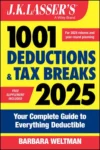Government Payments to Distressed Homeowners Are Tax Free
In February 2010, the Treasury Department established the HFA Hardest Hit Fund to provide funds to the state programs to assist homeowners in preventing avoidable foreclosures and to stabilize housing markets. The IRS has now ruled that payments under these programs to distressed homeowners are not taxable income.
Usually, payments or financial assistance, from whatever source derived, must be included in gross income. However, under a well-established exception to this gross income rule, payments made under government programs for the promotion of the general welfare are not includible in the recipient’s gross income. This is called the general welfare exclusion and has been applied to such federal and state benefits as welfare benefits, Supplemental Security Income, and winter energy cost reduction payments. The IRS says that this general welfare exclusion applies to payments to distressed homeowners.
Taxpayers affected. The HFA Hardest Hit Fund operates in states where either housing prices have declined more than 20% from peak prices or the unemployment rate equals or exceeds the national average, which includes Alabama, Arizona, California, the District of Columbia, Florida, Georgia, Illinois, Indiana, Kentucky, Michigan, Mississippi, Nevada, New Jersey, North Carolina, Ohio, Oregon, Rhode Island, South Carolina, and Tennessee. Homeowners in these states must demonstrate that they have suffered a financial hardship due to certain events (e.g., unemployment, underemployment, medical condition, death of a spouse, or divorce) and, as a result, are in danger of losing their homes in foreclosure or need financial assistance to ensure that their loans become or remain affordable. The list of government programs can be found in the appendix to Notice 2011-14 at www.irs.gov/pub/irs-drop/n-11-14.pdf.
Homeowner deductions. How much can homeowners who receive assistance under these government programs deduct on their tax return for mortgage interest and real estate taxes? The IRS has created a safe harbor rule for 2010, 2011, and 2012. Under the safe harbor rule, the deduction is equal to the sum of all payments the homeowner actually makes during that year to the mortgage servicer, HUD, or the State HFA on the home mortgage, but not in excess of the sum of the amounts shown on Form 1098, Mortgage Interest Statement, in box 1 (mortgage interest received), box 4 (mortgage insurance premiums) for years 2010 and 2011 only, and box 5 (real property taxes).
Source: Notice 2011-14
Group-term life insurance
Employees are not taxed on up to $50,000 of group-term coverage.



